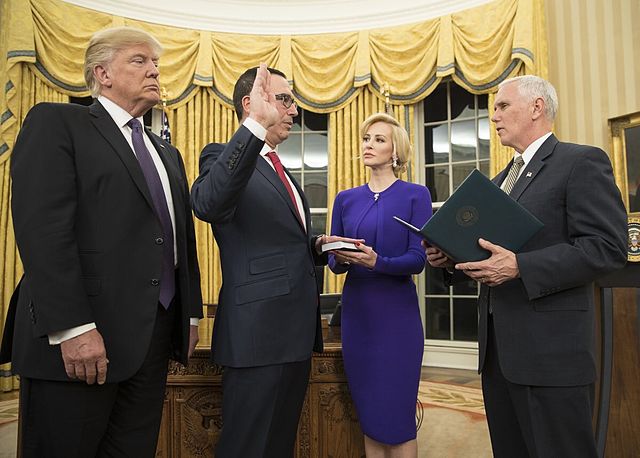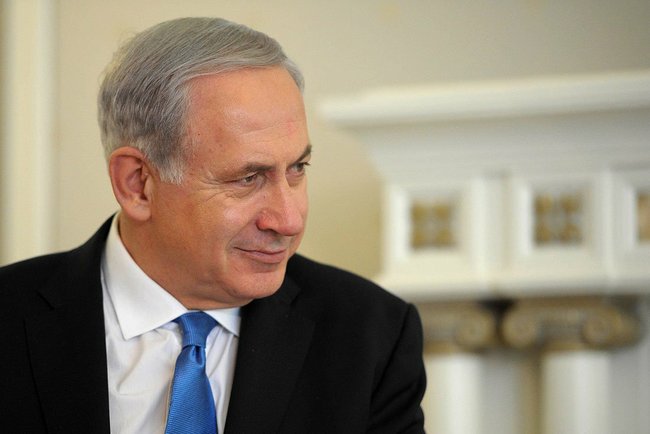
Entertainment
-
 DiscoverEU marks 40 years of Schengen with 40,000 free travel passes for young Europeans
The European Commission is celebrating the 40th anniversary of the Schengen Area by offering 40,000 young Europeans the chance to explore the continent through DiscoverEU, part of the31 October 2025Read More...
DiscoverEU marks 40 years of Schengen with 40,000 free travel passes for young Europeans
The European Commission is celebrating the 40th anniversary of the Schengen Area by offering 40,000 young Europeans the chance to explore the continent through DiscoverEU, part of the31 October 2025Read More... -
 Brussels universities to award honorary doctorates to Stromae, Lize Spit, and Amélie Nothomb
The Vrije Universiteit Brussel (VUB) announced on Monday that Stromae, Lize Spit, Amélie Nothomb, François Schuiten, and Ever Meulen will receive joint honorary doctorates from VUB and27 October 2025Read More...
Brussels universities to award honorary doctorates to Stromae, Lize Spit, and Amélie Nothomb
The Vrije Universiteit Brussel (VUB) announced on Monday that Stromae, Lize Spit, Amélie Nothomb, François Schuiten, and Ever Meulen will receive joint honorary doctorates from VUB and27 October 2025Read More... -
 Stolen Renaissance masterpiece returns to Italy after 52 years
After more than half a century, a stolen Renaissance painting has finally returned home to Italy. *Madonna with Child*, a tempera-on-wood masterpiece by Venetian painter Antonio Solario,31 July 2025Read More...
Stolen Renaissance masterpiece returns to Italy after 52 years
After more than half a century, a stolen Renaissance painting has finally returned home to Italy. *Madonna with Child*, a tempera-on-wood masterpiece by Venetian painter Antonio Solario,31 July 2025Read More... -
 Belgian seaside resorts: highlights of royal De Panne
While Ostend is often dubbed the queen of Belgium’s seaside resorts, the country’s coastline offers many other gems worth discovering. In this series, Belga English explores four distinctive20 July 2025Read More...
Belgian seaside resorts: highlights of royal De Panne
While Ostend is often dubbed the queen of Belgium’s seaside resorts, the country’s coastline offers many other gems worth discovering. In this series, Belga English explores four distinctive20 July 2025Read More... -
 Louis Vuitton named suspect in Dutch money laundering probe
Luxury fashion house Louis Vuitton has been named a suspect in a Dutch money laundering investigation, according to the Dutch Public Prosecution Service (OM). The OM alleges that18 July 2025Read More...
Louis Vuitton named suspect in Dutch money laundering probe
Luxury fashion house Louis Vuitton has been named a suspect in a Dutch money laundering investigation, according to the Dutch Public Prosecution Service (OM). The OM alleges that18 July 2025Read More... -
 Brussels tops global rankings for international meetings as tourism soars to new heights
Brussels has once again secured its position as the world’s top city for international meetings, according to the latest annual report from the Union of International Associations (UIA).26 June 2025Read More...
Brussels tops global rankings for international meetings as tourism soars to new heights
Brussels has once again secured its position as the world’s top city for international meetings, according to the latest annual report from the Union of International Associations (UIA).26 June 2025Read More... -
 Coffee prices keep climbing in Czech establishments
The cost of a cup of coffee in Czech restaurants and cafés has increased by 4% over the past year, now averaging CZK 57.80, according to data from the Dotykačka point-of-sale system.15 June 2025Read More...
Coffee prices keep climbing in Czech establishments
The cost of a cup of coffee in Czech restaurants and cafés has increased by 4% over the past year, now averaging CZK 57.80, according to data from the Dotykačka point-of-sale system.15 June 2025Read More...
Politics
-
 MEPs push for a “military Schengen” to counter potential Russian threat
The European Parliament has thrown its support behind plans to create a “military Schengen” – a system that would allow troops and military equipment to move freely across EU borders.Read More...
MEPs push for a “military Schengen” to counter potential Russian threat
The European Parliament has thrown its support behind plans to create a “military Schengen” – a system that would allow troops and military equipment to move freely across EU borders.Read More... -
 France’s former President Sarkozy to begin appeal trial over Libyan Funding allegations
Former French President Nicolas Sarkozy is set to appear in a Paris court on March 16 for the start of his appeal trial over allegations of illegal campaignRead More...
France’s former President Sarkozy to begin appeal trial over Libyan Funding allegations
Former French President Nicolas Sarkozy is set to appear in a Paris court on March 16 for the start of his appeal trial over allegations of illegal campaignRead More... -
 French parliament poised to halt Macron’s pension reform amid budget Turmoil
French lawmakers are expected to vote Wednesday to suspend President Emmanuel Macron’s controversial pension reform, as the government battles to push next year’s budget through aRead More...
French parliament poised to halt Macron’s pension reform amid budget Turmoil
French lawmakers are expected to vote Wednesday to suspend President Emmanuel Macron’s controversial pension reform, as the government battles to push next year’s budget through aRead More... -
 Ex-minister Ziobro rejects corruption allegations, labels case political
Former Polish justice minister Zbigniew Ziobro vowed on Saturday to pursue “legal and political” action after parliament voted to lift his immunity, clearing the way for prosecutors to bringRead More...
Ex-minister Ziobro rejects corruption allegations, labels case political
Former Polish justice minister Zbigniew Ziobro vowed on Saturday to pursue “legal and political” action after parliament voted to lift his immunity, clearing the way for prosecutors to bringRead More... -
 Pro-Russian hackers briefly disrupt Belgian Telecom websites in DDoS attack
A wave of DDoS attacks briefly disrupted the websites of Belgian telecom operators Proximus and Scarlet on Wednesday morning, with the pro-Russian hacker group NoName057 claimingRead More...
Pro-Russian hackers briefly disrupt Belgian Telecom websites in DDoS attack
A wave of DDoS attacks briefly disrupted the websites of Belgian telecom operators Proximus and Scarlet on Wednesday morning, with the pro-Russian hacker group NoName057 claimingRead More...
News
-
 EU must build over 2 million homes annually by 2035 to avert housing crisis, new data shows
The European Union will need to build more than two million new homes every year until 2035 to keep up with soaring demand, according to new projections released by the EuropeanRead More...
EU must build over 2 million homes annually by 2035 to avert housing crisis, new data shows
The European Union will need to build more than two million new homes every year until 2035 to keep up with soaring demand, according to new projections released by the EuropeanRead More... -
 Police raid homes and offices of French Culture Minister Rachida Dati in corruption probe
French police searched Culture Minister Rachida Dati’s home and offices on Thursday as part of a widening corruption investigation linked to her tenure as a European Parliament lawmaker,Read More...
Police raid homes and offices of French Culture Minister Rachida Dati in corruption probe
French police searched Culture Minister Rachida Dati’s home and offices on Thursday as part of a widening corruption investigation linked to her tenure as a European Parliament lawmaker,Read More... -
 White Christmas unlikely in Switzerland, MeteoSwiss says
The chances of a white Christmas in Switzerland are slim, with snowfall in the lowlands virtually ruled out, according to the Federal Office of Meteorology and Climatology (MeteoSwiss).Read More...
White Christmas unlikely in Switzerland, MeteoSwiss says
The chances of a white Christmas in Switzerland are slim, with snowfall in the lowlands virtually ruled out, according to the Federal Office of Meteorology and Climatology (MeteoSwiss).Read More... -
 Guy Parmelin elected Swiss President for 2026 with record-breaking vote
Economics Minister Guy Parmelin will serve as President of the Swiss Confederation in 2026, securing the office with a result that sets a new benchmark for the current millennium.Read More...
Guy Parmelin elected Swiss President for 2026 with record-breaking vote
Economics Minister Guy Parmelin will serve as President of the Swiss Confederation in 2026, securing the office with a result that sets a new benchmark for the current millennium.Read More... -
 Nigeria seeks French support to tackle insecurity, Macron says
Nigerian President Bola Tinubu has requested increased support from France to combat escalating insecurity in the country’s north, French President Emmanuel Macron said on Sunday,Read More...
Nigeria seeks French support to tackle insecurity, Macron says
Nigerian President Bola Tinubu has requested increased support from France to combat escalating insecurity in the country’s north, French President Emmanuel Macron said on Sunday,Read More... -
 Swiss army has “gone back to sleep,” says departing chief
Switzerland briefly awakened to the urgency of national defence following Russia’s 2022 invasion of Ukraine — but has since drifted back into complacency, outgoingRead More...
Swiss army has “gone back to sleep,” says departing chief
Switzerland briefly awakened to the urgency of national defence following Russia’s 2022 invasion of Ukraine — but has since drifted back into complacency, outgoingRead More... -
 Poland and Germany to seal new defence pact in 2026, leaders announce
Polish Prime Minister Donald Tusk and German Chancellor Friedrich Merz said on Monday that their governments plan to sign a new bilateral defence agreement nextRead More...
Poland and Germany to seal new defence pact in 2026, leaders announce
Polish Prime Minister Donald Tusk and German Chancellor Friedrich Merz said on Monday that their governments plan to sign a new bilateral defence agreement nextRead More...

Most Read
- Teen held after US woman killed in London stabbings
- Football: Farhad Moshiri adamant Everton deal above board
- Greece hails new post-bailout chapter but concerns remain
- The Kokorev case caused wide discussion in Brussels
- EU accession talks stir debate in Moldova: insights from Gagauzia's leader, Yevgenia Gutsul
Economics

Guatemala inaugurated its Israel embassy in Jerusalem on Wednesday, becoming the first country to follow in the footsteps of the United States' deeply controversial move that was
The United States officially opened its deeply controversial Jerusalem embassy on Monday in a ceremony that included a video address by President Donald Trump.
\
The US Treasury together with the United Arab Emirates announced action to disrupt an alleged "large scale" currency exchange network run by Iran's powerful Islamic Revolutionary Guard

President Donald Trump is expected to deliver a hammer blow to the Iran nuclear deal Tuesday, removing key sanctions relief for Tehran and casting the accord's future into serious doubt.

German President Frank-Walter Steinmeier voiced concern Sunday over a "substantial change" in trans-Atlantic ties, amid European tensions with US President Donald Trump over trade,

Senior Chinese and US officials met in Beijing Friday for a second day of high-stakes talks aimed at forestalling the growing momentum towards a trade war that could trigger billions of

The probe into Russia's election interference and alleged links to Donald Trump's campaign has taken a new turn after the publication of questions Special Counsel Robert Mueller seeks to

Israeli Prime Minister Benjamin Netanyahu's televised unveiling of an intelligence trove on Iran's alleged nuclear ambitions led to scepticism Tuesday from backers of a landmark 2015

Washington's newly appointed secretary of state landed in Riyadh Saturday on a tour of America's key Middle East allies, after vowing to bring some "swagger" back to US diplomacy.

North Korean leader Kim Jong Un and the South's President Moon Jae-in held a historic summit Friday after shaking hands over the Military Demarcation Line that divides their countries, in a





















